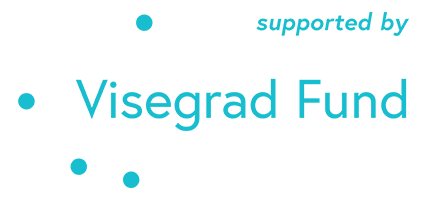Claudio D Stern
University College London (UK)
Claudio Stern is a professor at the Department of Cell & Developmental Biology, University College London, UK. His work aims to further our understanding of how body pattern is established in the early embryos of vertebrates. Working principally, although not exclusively, in chick embryos, he has contributed highly important information regarding the way cells organise themselves in order to form more complex structures. For example, Claudio is universally recognised for his studies of gastrulation (i.e. the formation of the three primary cell layers of the embryo and the origins of the embryonic axis), and for providing fundamental mechanistic insights into the initiation nervous system development, specifically relating the formation and influence of somites (paired blocks of tissue that form along the head–tail axis during the development of segmented animals) demonstrating their role in determining the segmentation of the nervous system. During his distinguished career, Claudio has been elected a fellow of the Royal Society and Royal Society of Biology (UK) and a member of the European Molecular Biology Organisation/ EMBO, amongst numerous other accolades, and served as president of the International Society of Developmental Biology/ ISDB from 2010-2013.
Webpage: https://www.ucl.ac.uk/biosciences/departments/cdb/people/claudio-stern/stern_lab
E-mail: c.stern@ucl.ac.uk


Andrei Chagin
Karolinska Institutet, Stockholm (Sweden)
Andrei Chagin heads the Bone And Cartilage Physiology group at the Karolinska Institute in Stockholm, Sweden. Research under his supervision is aimed at understanding the molecular mechanisms that underlay the physiological regulation of bone and cartilage homeostasis. To this end, he and his group have made highly significant contributions in our understanding of the role of G-proteins in regulating growth plate fusion (thus limiting longitudinal growth of long bones) and the involvement of autophagy (under the control of the mTOR signalling pathway) in the regulation of this process (in both developmental and pathological states).
Webpage: https://ki.se/en/fyfa/bone-and-cartilage-physiology
E-mail: andrei.chagin@ki.se
Jeremy Green
King's College London (UK)
Jeremy Green is a professor within the Craniofacial Developmental and Stem Cell Division of the Dental Institute of Kings College London/ KCL, United Kingdom. Research under his supervision is orientated to understanding spatial aspects of embryonic development, in relation to patterning of the face and palate, and specifically focuses on the action of diffusible tissue morphogens and cell polarity proteins. Utilising the both mouse and Xenopus models, in combination with advanced microscopic imaging and computer modelling techniques, his group has fundamentally advanced our knowledge of cell behaviour during the morphogenesis of the face, as well as numerous placodal organs (e.g. teeth) that require initial invagination events to appropriately form.
E-mail: Jeremy.green@kcl.ac.uk


Pavel Tomančák
Max Planck Institute of Molecular Cell Biology and Genetics, Dresden (Germany)
Pavel Tomančák is a group leader of the Patterns of Gene Expression in Animal Development group at the Max Planck Institute of Molecular Cell Biology and Genetics in Dresden, Germany, where he employs a highly multi-discipline approach designed to answer one of the most fundamental questions in development; namely, how the information contained with animal genomes is transformed into the highly coordinated cellular behaviours exhibited during development. His research has focussed on various Drosophilid based models (although he has extensive collaborations with groups investigating other models) and his group has been responsible for providing many Open Access tools and services to the community. By combining expertise in both state of the art imaging (e.g. Selective Plane Illumination Microscopy/ SPIM) and genomics/ bioinformatics (e.g. microarrays and deep sequencing) his group has provided quantitative evidence supporting the so-called ‘hourglass model of morphological evolution’.
Webpage:https://www.mpi-cbg.de/en/research-groups/current-groups/pavel-tomancak/research-focus/
E-mail: tomancak@mpi-cbg.de
Marie-Hélène Verlhac
Center for Interdisciplinary Research in Biology, College de France, Paris (France)
Marie-Helen Verlhac co-heads (with Marie-Emilie Terret) a group at the College de France, Center for Interdisciplinary Research in Biology (CRIB), in France, researching the mechanistic basis of oocyte morphogenesis, primarily (although not exclusively) in the mouse model. Marie-Helene’s highly multi-disciplined work has provided profound insight into how the first meiotic spindle is asymmetrically positioned during oocyte maturation, in the absence of centrosomes, in a coordinated mechanism requiring highly dynamic regulation of both cytoplasmic actin and cortical actin networks.
Webpage: https://www.college-de-france.fr/site/en-cirb/Terret-Verlhac.htm
E-mail: marie-helene.verlhac@college-de-france.fr


Abigail S. Tucker
King's College London (UK)
Abigail Tucker is a professor at the Craniofacial Developmental and Stem Cell Division of the Dental Institute of Kings College London/ KCL, United Kingdom, where her group researches aspects of head development with particular emphasis on the structures that develop in association with the jaw; including the dentition, salivary glands, middle ear and the jaw itself. Her group actively seeks to translates such primary knowledge obtained, from various mouse models (and other novel non-classical model organisms including snakes and bats) to relevant clinical conditions, for example the underlying causes of Otitis Media (OM), the main cause of mild to moderate hearing impairment in children worldwide.
Olov Andersson
Karolinska Institutet, Stockholm (Sweden)
Olov Andersson is a senior researcher at the Department of Cell & Molecular Biology at Sweden’s Karolinska Institute. The work of the group he heads centres on the regenerative capacity of pancreatic beta-cells and how this inherent ability may be mobilised to seek improved treatments for both type I and type II diabetes. Primarily working with the zebra-fish model, his group employs chemical-genetic screens to identify the signals and cellular mechanisms that facilitate beta-cell regeneration and proliferation plus pancreatic organogenesis.
webpage: https://ki.se/en/cmb/olov-anderssons-group
email: olov.andersson@ki.se


Petra Hájková
Imperial College London, (UK)
Petra is professor of Developmental Epigenetics at the Faculty of Medicine/ Institute of Clinical Sciences at Imperial College London, United Kingdom. Her Reprogramming and Chromatin group is dedicated to understanding the epigenetic reprogramming events that occur in both the developing germ line (the erasure of genome-wide DNA methylation and post-translational histone/ chromatin remodelling) and the zygote stage embryo (active de-methylation affecting the paternal genome only), using the mouse model; providing unprecedented molecular insight into these most fundamental of events that are absolute pre-requisites to sustain past its earliest stages.
Webpage: http://www.imperial.ac.uk/people/petra.hajkova
E-mail: petra.hajkova@lms.mrc.ac.uk

